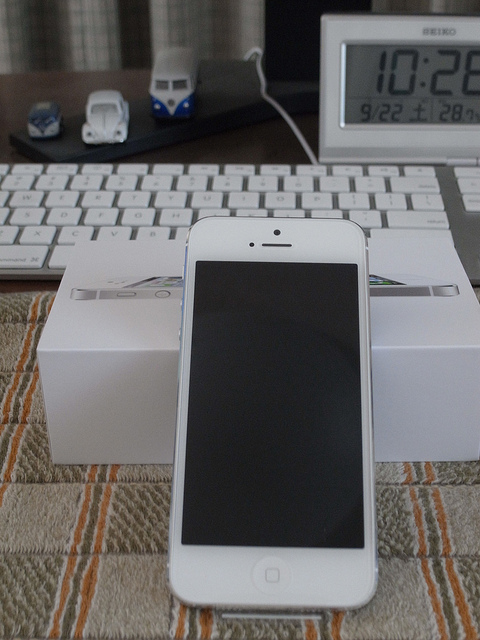US technology giant Apple has opened its ResearchKit app to doctors and scientists and the app developers working with them.
More than 600,000 iPhone users have already enrolled in the first batch of research apps, developed using ResearchKit to study asthma, breast cancer, cardiovascular disease, diabetes and Parkinson’s disease. The new app atmosphere was released publicly in March. While Apple already has its in-built health app functional in its devices, the research app is looking at increasing the value of apps in the health sector. Apple is also opening its framework to outside developers in an unprecedented way. The apps can take up data through iPhone’s sensors like the accelerometer, gyroscope, microphone and GPS. Weight and glucose levels can be transferred to other health apps and ResearchKit includes customizable components that researchers can use to measure activities, create surveys and obtain consent from the user.
While the current plan seems futuristic and directs Apple to a new open sourced App interface, privacy concerns could derail ResearchKit. While Apple has noted that users can be discretional in divulging data and Apple itself will not store any data on its networks, security concerns about health data, especially when it reaches external researchers is a concern amongst users.
Sage Bionetworks, a nonprofit biomedical research organization, which has handled the collecting and storing of health data from several of ResearchKit apps, has said that it strips out information like people’s names and date of birth, encrypts the health data and stores it on a secure cloud server. Meanwhile IBM has also announced a new dedicated health unit, called Watson Health, which will use the data collected with Apple’s HealthKit and ResearchKit services to provide information to various other companies including Johnson & Johnson and Medtronic. From there, those companies can integrate the data into services they offer to healthcare companies.
ResearchKit Apps are currently available in Apple’s App Store in the US for devices starting from the range of Iphone 5.
Meanwhile, Apple has bought Israeli camera hardware startup company LinX for around $20 million. LinX, targeted at tablets and smartphones, specifically provides background defocus that is a popular technique in DSLRs and also help achieve better low-light performance. The technology helps take good pictures at night without using flash. With Apple taking hold of LinX technology, the company may use it in its iPads, replacing the camera modules. It could help in pushing image quality while helping slim down camera design
More than 600,000 iPhone users have already enrolled in the first batch of research apps, developed using ResearchKit to study asthma, breast cancer, cardiovascular disease, diabetes and Parkinson’s disease. The new app atmosphere was released publicly in March. While Apple already has its in-built health app functional in its devices, the research app is looking at increasing the value of apps in the health sector. Apple is also opening its framework to outside developers in an unprecedented way. The apps can take up data through iPhone’s sensors like the accelerometer, gyroscope, microphone and GPS. Weight and glucose levels can be transferred to other health apps and ResearchKit includes customizable components that researchers can use to measure activities, create surveys and obtain consent from the user.
While the current plan seems futuristic and directs Apple to a new open sourced App interface, privacy concerns could derail ResearchKit. While Apple has noted that users can be discretional in divulging data and Apple itself will not store any data on its networks, security concerns about health data, especially when it reaches external researchers is a concern amongst users.
Sage Bionetworks, a nonprofit biomedical research organization, which has handled the collecting and storing of health data from several of ResearchKit apps, has said that it strips out information like people’s names and date of birth, encrypts the health data and stores it on a secure cloud server. Meanwhile IBM has also announced a new dedicated health unit, called Watson Health, which will use the data collected with Apple’s HealthKit and ResearchKit services to provide information to various other companies including Johnson & Johnson and Medtronic. From there, those companies can integrate the data into services they offer to healthcare companies.
ResearchKit Apps are currently available in Apple’s App Store in the US for devices starting from the range of Iphone 5.
Meanwhile, Apple has bought Israeli camera hardware startup company LinX for around $20 million. LinX, targeted at tablets and smartphones, specifically provides background defocus that is a popular technique in DSLRs and also help achieve better low-light performance. The technology helps take good pictures at night without using flash. With Apple taking hold of LinX technology, the company may use it in its iPads, replacing the camera modules. It could help in pushing image quality while helping slim down camera design





